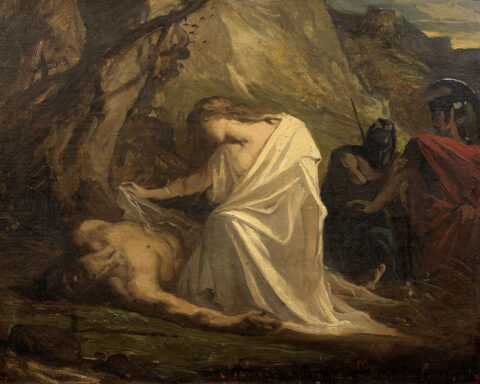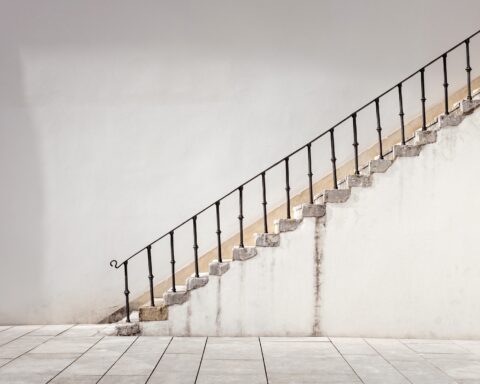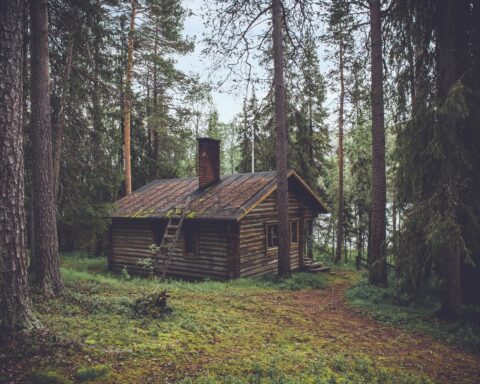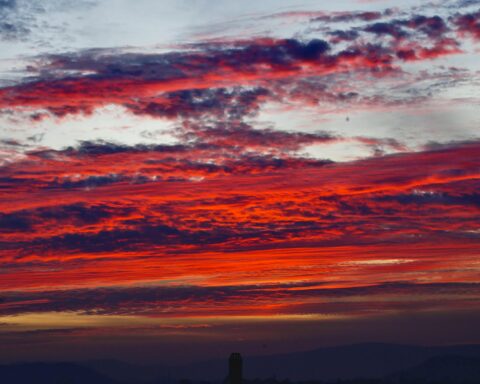Way back, almost hidden in passing years clouds I remember a swimming hole. Might have been a dam, or secret inlet, even a lake. Sort of place every young man goes to be alone, or in the company of a few mates, skylarking, daring each other to master a dive off rocks, fetching a handful of dirt from depths, or other feats glimmering like adulthood challenges. Close inside my head as to be almost tangible, sort of place I want to talk about, with rare visitors. Only thing I am sure of is this place wasn’t a surf beach, these watery depths were definitely still.
This place, almost hidden in my ever-clouded memories wasn’t about trying out surf skills. Hanging out, long hair tousled by sea breezes, attempting to look cool. Maybe doing something risky, like skipping school or smoking. Can’t help wondering if youngsters do the same things today. Never smelt tell-tale cigarettes on any of the staff here.
A few of us went to this place, pale limbs on rough basalt, as if still an evolutionary creature about to leave their liquid world.
My still water location, not a summer thing. I need to shake any surf sensation out, replace these with tranquil waters. Even close to autumns arrival, this place formed a black mirror beneath grey River Gums. Away from open paddock views, plus a concerned uncle’s, grandpa’s, or my sisters’ gaze. Hidden behind a barrier of tall, straight trunks, possibly dotted with one or two dead specimens, indications of drought years, fire or too much rain. Enough inconsistency to preoccupy my thoughts. Yet I do want to think about this place. True, there might be bleached trunks, but even healthy River Gums possess a lack of green. Strange how a Gum tree named for river locations can suffer so badly from too much or too little water. The River can kill these gums. No matter their shared name, or how water and trees tried to co-exist. Or secret themselves in camouflaged tones. No obvious dark green Elms here, or flat avocado leaves, nor jade dribbled with purple in spring Jacarandas. Cypress pines, even fat finger like limbs of frangipanis glaringly absent. These gums wear crumbled army uniforms. Dappled khaki, a palette of beige, scaled trunks, marked from fires, times of plenty or limited nutriments. Even lizards, goannas and possums capable of stripping bark, leaving evidence of fights. Not washed clean by rain but often dripping from leaf tips, still laden with dust. Or waterlogged, stained by years of flood adding to dead limbs and missing giants. Yet anyone can see these trees are towering and grand.
Ribbons of bark remind me of impressionist’s paintings, dripping and swirling with creamy white, tan, stormy grey and silvery sheens.
We shouldn’t have gone in. This is a sacred place, kept for Noongar men. Something rippled beneath stone. I covered my legs with my arms. This land swallowed kids before. Slipped through cracks and are gone. I’ve skinned my knees so many times, even when I look now, I can see marks. Mum said, “Watch out for prickles of your neck hair, and shivers which start between your shoulders.”
Looking down I catch a glimpse of my shoes, also mud or dust ridden walking closer.
Under the trees, is a body of water muted by reflections of dirt, blue, silver of passing clouds. Water so deep you can’t see the bottom. Tiny slip of a greyish sand beach under trees. Movement of wrigglers, bubbles from yabbies, who knew what was below. Once I am sure a creature bobbed on the surface, no doubt alarmed by our noise, creature from the black lagoon, long extinct monster of the deep, alien left behind from unexplained night lights were concluded had to be UFOs. “Nah, only a platypus.”
Now only teenage games exist in my mind. Draw to a branch tied as a cross bar for the more daring. Loud friends, who tried to impress others by swinging out over the water. A slippery rock wall, demanding attempts to ascent. As if essential to prove burgeoning manhood. Scrawny childish limbs cling on, like lizards. A craggy overhand, specially designed, by nature for small boys to launch themselves into open air. A list of activities usually reserved for teenagers while audiences might be from an array of age groups ranging from admiring adults, reflective seniors sat on chairs, or more likely awestruck younger kids. Dreaming of a time when they too might leap into the great unknown.
Parents might gasp and shake their heads at these pranks. Elders openly tut-tut. Or draw aside to say, “That Evans kid has no fear.”
If still present a rope swing tempted further flying leaps. In the same way a railway bridge beckons young to jump. Occasionally removed by concerned adults, wanting to protect teenagers from themselves. Often this swinging rope’s length varied according to latest user. Or ability to climb the tree and hook rope up beyond reach of anyone else more foolhardy, determined, or suicidal enough to plan airborne activities. Perhaps younger, and skinner, often, but not always, boys shimmied up said rope swing tree with ease. I do clearly remember, way back in the days this rope, tree and rock pool existed as place of competition, being cajoled into twisting the rope around another limb to frustrate rivals. As well as sneaking out with a purloined truck rope to fasten an alternative following the last swing”s mysterious disappearance. I reckon one of the girls took a fancy to curtailing our acrobatics. As well as being involved in another prank to remove a favourite cross bar. Forcing us to use a strong branch as a temporary substitute, complete with ever present risks of breakage and splinters.
God, we thought ourselves invincible.
My memory fades, because I struggle to recall, maybe this swinging toy hung over a dam, spring fed lake, or even a river bend. Not sure why I can recall the tree and rope so clearly yet an actual location and wider view, whose property, what waterway, those details are now faded. More I think about this place sensations of swinging from a branch solidify. Complete with crinkled fingers from hours waterlogged, blisters and occasional rope burns. Must have something to do with ways memories drift apart of become highlighted.
Not once would we contemplate any possible injuries, nor how we might get a causality with a broken limb to assistance. Blissfully unaware of consequences we played more like a troop of monkeys than a group of boys. Naïve of a reputation these trees possess, also named widow makers because of a tendency to drop major limbs with no prior announcements, on even the stillest days. Distinct recollection of a tour guide on one of those bus trips, saying, “More likely to die from fallen branch injuries than marine predators, snakes or eating toxic mushrooms.”
As I float in my past, one specific day comes into focus. A time when a few mottled sandstone boulders surrounding the pool, formed spectator seating where other teenagers slouched, some smoking. A nonchalant, pretended non-involvement, greeting nod the only recognition directed to us younger boys.
Fifteen, gangly, getting too heavy to climb River Gum’s brittle limbs, weakened by this year’s long dry summer, I propped my bike against some rocks, smoking Camels, trying to project a sense of carelessness, of unconcerned ease. Through half-open eyes, largely due to uncomfortable cigarette fumes, I observed others going for a swim – jumping from where boulders are partially submerged. Whooping, flirting and splashing one another, their flesh shining in late sun. When they came out their bodies stream darkness onto the sand. Resembling creatures climbing from a primordial pool. Humanoid versions of our platypus, watery denizens of tree kangaroos. Whiteness from water’s chill turned dusty flesh to marble.
As if to shake off my watcher presence, other pool residents vanish quickly, down semi perceivable tracks before I can step into the water. My long, flickering pink shape reflects, stretched over quiet surfaces. As if a naked caterpillar formed a mosaic on dappled grey-dung surfaces. Above thin, wispy clouds signal another windy night.
I came here to escape a sense of menace at home some afternoons. Other times the back shed will do, or a stretch of space below the veranda. Or Poppa’s old car wreck out near the sheep dripping run. I’d sit on dusty, cracked, hard vinyl and read Marsden’s Tomorrow When the War Began series, dreaming of explosions and invasions. Sometimes I crave similar isolation, just want to be alone, separate without a well-meaning, all smiles intrusion.
When Dad returns from Timber mill work, he can also be steeped in sharp smells of alcohol. Bellowing soon starts. Mum gives back as good as she gets. “How am I supposed to know unless you let those words out?”
“What, the hell is inside your head?” Her volume rises as her target is unresponsive.
Finally, Dad erupts, “you can’t possibly know, nor want to know, what I am thinking!”
Such verbal stoushes reduce Dad to a drunken, incoherent, sitting hulk. Mum often storms through our house throwing things, “fuckin hell, another thing life forces on me!”
Nicer to be away from such battles, fighting my own internal disagreements, largely to do with my own body. Makes me crazy to be within those feudal walls floundering against their long-established boundaries, where I couldn’t understand where I fitted, or my contribution and role in creating my parent’s disputes.
Equally as bewildering to figure where I fit with staff and visitors who come here. Much rather be contemplating trees, warm on one side, cool on the other. Gazing at water, or late afternoon sheen on stubble in empty paddocks. Spider webs caught in dew, ant trails, and skinks warming themselves on rocks.
Mum sometimes tried issuing warnings. “Do you have to drink?”
Or more subtle things, possibly with little more than an eye roll, a jutted chin expression or a pointed thumb at the door. “I’d like you to be home early, on Friday, just once.” Pity her attempts only pre-empted battles, not prevented them. Both of us helpless to stop animosity.
Always promised to be a better husband, if anyone took a shine to yours truly.
Times I can push my head back and draw in breaths laden with mildew leaves, catch whiffs of tobacco charred waters. I’m there with watery surround settling back to a natural form after other noisier teenagers depart. I can look over liquid surface sheens of humming, dragonfly-stitched glass. Wade into deep coolness, and swim. A skill I can’t remember learning, aside from a glimmer of mum sitting on a rug, pressure cooker of thick stew wrapped in an old blanket. Dad gently dunking me baptismal style. Telling me about kicking, his calloused hand gently under my back as I experience a weightless float for the first time. Funny how those good times tend to get clouded with, at the risk of overusing an analogy, stormy thunderclaps.
I must consider something else less angry, more magnetic. Like those same lessons with little kids when I worked as a swimming teacher.
Once, as a teenager at my sacred rock pool, I recall three women coming down the sand as I towelled off. Workers from a local abattoir, dusky skinned, talking a creole sounding mix of local twang and migrant influenced accents. Tones not unlike earliest Europeans sailing to the South Pacific might have encountered. Or wearied soldiers holding out in PNG jungles smiled when detected a chance exchange with friendly fuzzy-wuzzy tribes.
These long-legged women smile, say hello, “you that boy, your mum works with us.”
I am too embarrassed to explain, she works to make up housekeeping shortfalls. Always careful to depart after Dad, instructing me to ride from school directly to the mill, where Dad and I will walk late afternoon trails home. My purpose to guide him straight home.
Two industries in this town. Timber or the meat works. Each one cutting up dead things. I knew my future involved cutting loose from either of these two potential futures.
Didn’t realize how difficult breaking away from this place and going traveling might be. Thought I could just walk away. But nope. Scents stayed with me. Never thought I would, but I missed my home. One thin air afternoon, ice blowing off the Atlantic Ocean, caused tears to prickle in my eyes. I longed for a warmer place, for the lemon scented gums, for a sun warmed waterhole. Practised finding links back to memories of this place to keep me sane, guess I am still doing the same.
Once these women nodded as I sit astride my bike, one foot braced on the boulder, balanced, as if I am about to leave. Yet unable to break away. Engrossed as they put down towels and duffle bags and took off smeared uniforms. My gaze strongest on one striking, loosening a fall of black hair, heavy oily sheen, wearing a bikini. I am a rabbit in headlights, stunned, unable to move. Something about her evokes hunger, not the same as wafts of Sunday roasts, rather an emptiness from inside. Rumbling about in a place I’d not yet aware existed. Terminal afternoon light filtered through leaves above her and, when a breeze blows, shadows move over her semi-nakedness. Water surfaces mirror reflected dapple swellings of her breast, hills of her thighs, and pubic where an elongated triangle of fabric stretches.
This woman embodies a world wider than this town, this farm, this swimming hole. I stare engrossed by her. Maybe she took lovers. Even though I can barely visualise what such relationships meant. I am sure I’ve seen her hand in hand with men at the Pub. Contrasting limbs. Her caramel musk sticks to their hairy knotted sisal ropes.
I cannot help watching her stand with hands on hips, gazing out into watery depths. Reminding me of Gaugin’s Polynesian ladies I found in an art book, not days before this sighting. How is it possible to step from pages in a book, be here in a moment, real, present and bewildering? At one point she turns and looks right at me, a sidelong glance, head down I see a smile. Not sure if she is taunting, rewarding or merely acknowledging the man I am yet to become. But I do know her smile is meant for me to see. My fingertips buzzed. These sensations akin to anticipation of Dad’s blustering. Or if I step into the present, Jenny’s greetings.
As a gangly teenager these women are far beyond my reach. They have jobs, work and likely share a drink with my father. But it is always this woman, a pool and River gums I remember. Her breathtaking vitality and impossible distance, like looking over a whole river, unable to bridge watery spaces.
She tests fluids, sunlight running over the arch of her foot, her calf. Beyond her fingertip’s darker liquid ripples, as if further drawn to her magnetism. For a moment I want to warn her not to submerge, else I will be lost as a bothersome insect reflected in her eyes.
I saw her again, emerging from fumes of Friday night swill, a thin cigarette in her fingers, wafting smoke which tickled my nose. She pointed over toward Dad. Impossible to drag him away, he’s poking another man’s chest, even if I could make myself heard, he will never take any notice. As I looked back at the woman, nervous, shaking, I noticed I am taller than her. Her fingers, as they brush my upper arm are surprisingly cold. “Do you think you could walk with me for a minute?”
“Sure.” By now I’ve learnt to be a homeward bound guide. “Where to?”
“Over to the worker’s hostel.”
We walk silently through halos of streetlights, forming circles on roadways.
When I touched her skin, my fingers were warmer than its smooth surface. Like the lake water. Her name, Riata meant more than a lasso rope, echoed of Spanish dancing costumes whispering about ankles, legs slightly sweaty from the dance.
Wasn’t more than two days later I had a cryptic conversation with mum. One of those times she was bent over a chopping board making perfectly good vegetables into unrecognizable mush. A strategy I later realized, about the time I began to cook for myself, was designed to get dad to eat something healthy.
“That woman, Riata said thanks for your help getting home the other night.”
“I didn’t do anything wrong…” I wanted to boast but she cut me off.
“Yes, I know. You just made sure she got back to the boarding house safely.”
“Did she say anything else?”
“Nope, but I know you are capable of guiding people home. Even when they protest. Wait a minute, she did say, she’d seen you at the rock pool.”
My heart beats faster, I bit the tip of my tongue to prevent myself from speaking, letting secrets out. Looking into her eyes, I saw the rock pool reflected, as if Mum owned the land and energy of this place. All I could manage to mumble, “I wasn’t smoking, Mum.”
Impossible to keep things from my mother. But I told her nothing more.
I frown at affirmations heard at my father’s funeral…man of great strength…trustworthy…blessed with a sense of looking after his workmates. Perhaps I should have stayed overseas, rather than listen to this bullshit. Someone ought to get up and say, unless you were a woman and young boy who lived in the same house. Put records straight for once. Sure, he demonstrated strength every time a fist was raised, words were spit out in anger. Yes, we could trust him to drink away as much of his pay packet as he saw fit. Probably screw a few fresh-faced barmaids along the way too. Obviously, fellow saw jockeys and timber cutters were more important than reverence for his wife’s people. Did not feel a skerrick of empathy hearing gory details of the accident which caused my father’s death.
She is standing in front of me, little wrinkles, deepened laugh lines at the corner of her eyes. “I don’t remember much about your dad, except he worked at the mill, how many years?”
“More like decades.” I want to say so much more, tell her of my adventures since I left, relive the night I walked her home, describe the first time I saw her near the rock pool.
“He smelt of cigarettes, and timber resin.” Whispered as if this aroma is a secret she gets to keep.
“Yep, he liked to smoke at home too, always out the back, usually hiding in the toilet. Mum hated smoking. Probably thinking about his next cigarette rather than watching those saws.”
Her hand brushes against my hand, I want to grasp it. Bring her fingers to my lips.
“Tough on your mum.”
“I’ll sort things out, get her into a local care place. See she’s looked after.”
“My daughter works at the Holy Grace Centre.”
I want to tell her about my travelling adventures. How I needed to get out of town to find a different future. Processes making that boy into a man. Serving behind bars myself, seen worse than things my Dad did. Tramping trails through mountains, never found another pool like the one amongst river gums.
Her daughter is part of care staff in age care home where my mother is accommodated. Of all the staff, this one girl embodies clarity. “I reckon she looks like Raita. Could be your half-sister.”
Part of me wants to jump up and down, declare, I wonder if this is my father or me?
Always thought I’d lost any connection with this place and Raita, until I saw Jenny pushing a trolley down the hallway. Smaller, but a spitting image, right down to long tumbling fall of dark hair. I know she keeps it under one of those netting caps or tied up in a thick braid. But I can tell from fly away whisks resisting regulations. So much of my past embodied in her mere presence.



